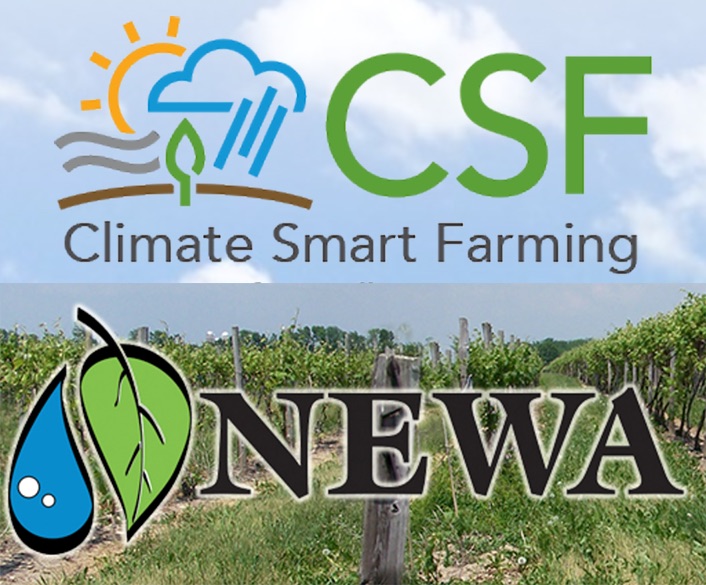| Program |
Description |
| Network for Environment and Weather Applications (New York State Integrated Pest Management Program) |
NEWA delivers weather information and apps based on the weather collected that support and advance integrated pest management (IPM) and best management practices for agricultural and green industries. Our vision is that NEWA will become the source for weather-related information for the IPM practitioner in the Northeast |
| Cornell Smart Farming Program (Cornell Institute for Climate Smart Solutions) |
The Cornell Climate Smart Farming program is a voluntary initiative that helps farmers in New York and the northeastern US to increase productivity in a sustainable way, reduce greenhouse gas emissions from agricultural production, and increase farm resiliency to extreme weather and climate variability. |
| Animal Agriculture in a Changing Climate (Cornell University Dairy Environmental Systems Program) |
Animal Agriculture in a Changing Climate fosters animal production practices that are environmentally sound and economically viable, and that create resiliency for animal producers and their partners. |
| United States Department of Agriculture Northeast Climate Hub |
The Northeast Climate Hub, building on capacity within USDA, delivers science-based knowledge and practical information to farmers, ranchers and forest landowners in Maine, New Hampshire, Vermont, Massachusetts, Rhode Island, Connecticut, New York, New Jersey, Pennsylvania, Maryland, Delaware, West Virginia and D.C |
| CLN eLearning (Southern Regional Extension Forestry) |
CLN eLearning is designed to help Extension Professionals, Professional Crop Advisors and Professional Foresters incorporate climate change into their existing program areas and become Climate Literate. Many of our modules offer Continuing Education Credits from SAF and CCA. |
| Report |
Description |
| 2014 USDA Climate Change Adaptation Plan (USDA Office of the Chief Economist) |
The U.S. Department of Agriculture (USDA) Climate Change Adaptation Plan presents strategies and actions to address the effects of climate change on key mission areas including agricultural production, food security, rural development, and forestry and natural resources conservation.
The 2014 USDA Climate Change Adaptation Plan includes input from eleven USDA agencies and offices. It provides a detailed vulnerability assessment, reviews the elements of USDA’s mission that are at risk from climate change, and provides specific actions and steps being taken to build resilience to climate change. |
| National Climate Assessment: Agriculture (U.S. Global Change Research Program) |
The full report of the National Climate Assessment provides an in-depth look at climate change impacts on the U.S. and explores the impacts to agriculture. |
| Climate Impacts on Agriculture and Food (United States Environmental Protection Agency) |
Agriculture is an important sector of the U.S. economy. The crops, livestock, and seafood produced in the United States contribute more than $300 billion to the economy each year. When food-service and other agriculture-related industries are included, the agricultural and food sectors contribute more than $750 billion to the gross domestic product |
